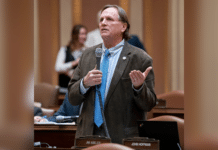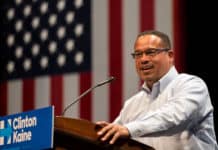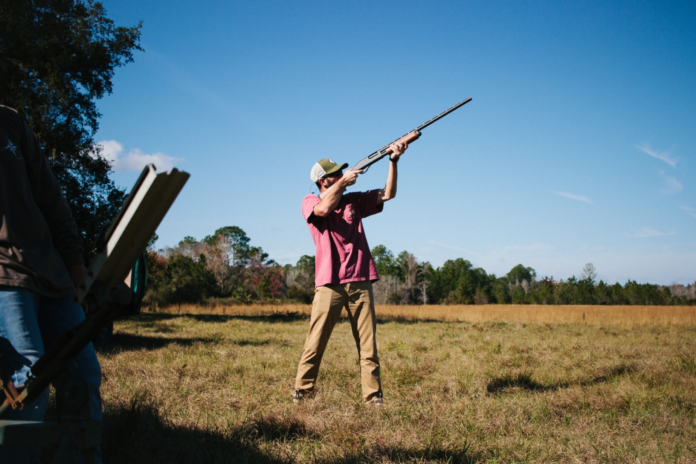With COVID-19, urban mayhem, an unstable economy, and (thankfully) a lack of mass shootings, gun control hasn’t been a major topic in 2020.
Perhaps that’s also because Americans are arming themselves.
The Star Tribune reported Tuesday that the U.S. is short of firearms and ammunition due to a massive rise in demand.
In Minnesota, the biggest segment for that demand are first-time purchasers, with background checks in August (34,829) jumping nearly 60% over the same month in 2019 (21,899).
And these aren’t old white guys who belong to the NRA. About two in five buyers are new gun owners; three in five are black; and two in five are women.
The FBI’s National Crime Background Check System counted 2.3 million background checks — and yes, despite what media and Democrat politicians claim, those are required with every retail gun sale — on firearm sales in March. It’s the largest monthly total since record keeping began.
The Star Tribune article quotes Dave Amon, who works at Gunstop of Minnetonka. He said demand shows no signs of slowing and points to demographics.
“I’ve seen a lot more single moms that are scared and need something to protect them,” Amon said. “They’re scared when people talk about defunding the police.”
What is interesting is the highest demand comes from the Twin Cities, the most left-leaning area of Minnesota; but it’s also where residents surely fear their lunatic representatives could “defund the police.”
Politically, the Twin Cities suburbs are among the key battleground areas of not just the Gopher State, but all of America. Democrats flipped their two congressional districts in 2018. Will voters re-elect a party hostile to the Second Amendment or reward two impressive outsiders — both of whom are veterans and supporters of law enforcement?
When violent crime rises, and neighborhoods are torched and looted, people tend to worry. Watching families being threatened by seething left-wing mobs while sitting outside having lunch is rather disconcerting.
Consider this excerpt from Frank Miele, writing in Real Clear Politics:
“How the hell can Americans sit back and watch as gangs of dangerous extremists maraud through our cities — burning buildings, throwing rocks, bottles and explosives at police, and attacking the elderly? Why make excuses for the bullies or justify their violence? Looting is wrong. Vandalism is wrong. Lawlessness is wrong. Yet too many people will not say so.”
The unrest and lack of punishment toward criminal thugs has understandably caused sentient folks to flee large cities. I assume they want to protect their homes and families, which can require a lethal weapon. Will those who supported gun control measures change their presidential or senate vote?
“The sudden progressive urge to defund and/or abolish the police has completely undercut the argument for gun control,” Ed Morrissey recently wrote at HotAir. “That argument explicitly relied on police as a reason why people didn’t need access to lethal means of self-defense. For decades, gun control advocates have lectured us on police response as the proper way to deal with crime and threats rather than individual action. Now that the same progressives want to either reduce or eliminate police response, what are people to do?“
It took almost four months for Joe Biden and Kamala Harris to acknowledge facts even a kindergartner could see — and only after it became politically expedient as Black Lives Matter support plummeted. Is the Democrat duo discerning enough not to remind people of their promises to disarm law-abiding Americans?
A.J. Kaufman
A.J. Kaufman is an Alpha News columnist. His work has appeared in the Baltimore Sun, Florida Sun-Sentinel, Indianapolis Star, Israel National News, Orange County Register, St. Cloud Times, Star-Tribune, and across AIM Media Midwest and the Internet. Kaufman previously worked as a school teacher and military historian.












